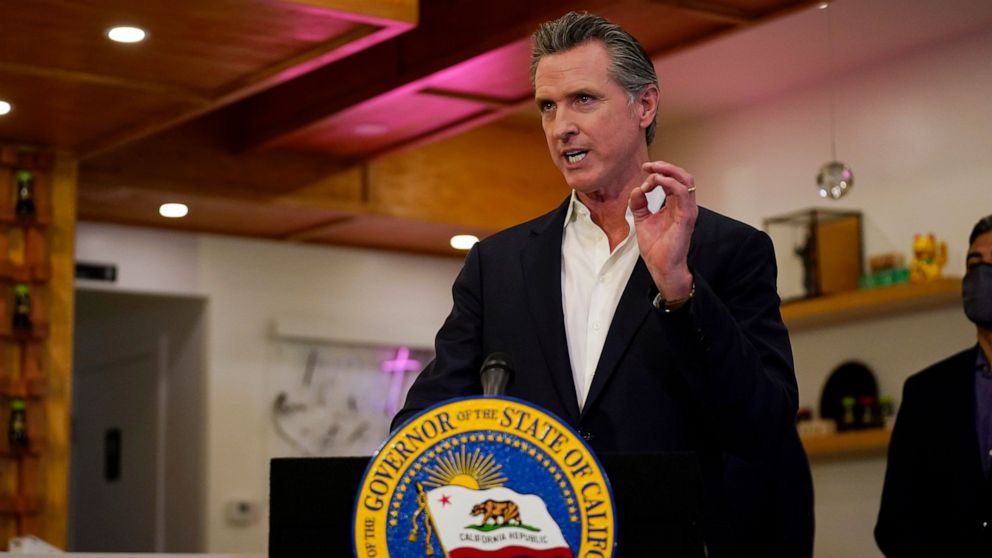States tap federal aid to shore up empty unemployment funds
Businesses could be spared billions of dollars of higher taxes in coming years as a result of federal coronavirus funds flowing to the states
May 27, 2021, 7:17 PM
7 min read
Share to FacebookShare to TwitterEmail this article
2:46
New York City and Los Angeles revealed a return to full-time, in-person learning for the next school year.
The Associated PressBusinesses could be spared billions of dollars of higher taxes in coming years — potentially freeing up money to spend on employees or invest in their operations — as a result of federal coronavirus aid flowing to the states.
Governors and lawmakers in more than half the states are planning to use at least part of their federal pandemic relief money to bail out unemployment insurance trust funds that were drained by a surge in jobless claims caused by business closures and restrictions, according to an Associated Press review.
By tapping into the federal aid, states could avoid automatic tax hikes that otherwise would be imposed on businesses to repay federal loans that have kept state unemployment systems afloat during the COVID-19 pandemic. That means state jobless funds could recover much faster than they did after the Great Recession, when it took some states five to 10 years to replenish their funds.
“For the first time in decades, states will be able to come out of an economic contraction with well-funded unemployment compensation trust funds and be able to save for the next downturn, rather than focusing on paying off the debt from the last one,” said Jared Walczak, vice president of state projects at the Tax Foundation, a Washington, D.C.-based nonprofit.
Some worker advocates would prefer that states spend their pandemic funds on direct aid to those who have suffered economically during the coronavirus outbreak.
“Using the money to just replenish an account is not serving workers,” said Jenna Gerry, a senior staff attorney at the National Employment Law Project, a New York-based group that advocates for low-wage workers and the unemployed.
But business groups contend that employees ultimately will benefit if their bosses don't have to bear the tax burden of restocking state jobless funds.
“It impacts all aspects of that employer’s ability to employ people, to grow, to pay wages and benefits," said Dan Mehan, president and CEO of the Missouri Chamber of Commerce and Industry.
The federal government has provided several rounds of aid to states since the coronavirus pandemic began last year, culminating with $195 billion of flexible funds included in the American Rescue Plan signed by President Joe Biden. U.S. Treasury Department guidance allows the money to be used to replenish unemployment trust funds to their pre-pandemic levels.
At least 29 states already have transferred or proposed to use a total of more than $12 billion of federal coronavirus aid for their unemployment trust funds, according to an AP analysis. That ranges from a $25 million transfer in Wyoming to commitments of as much as $1.5 billion in Georgia in Ohio.
Maryland's Republican Gov. Larry Hogan and California's Democratic Gov. Gavin Newsom each announced budget plans this spring that would use $1.1 billion in federal COVID-19 funds to bolster their depleted unemployment compensation accounts.
Hogan said the move would allow the state to “continue helping those who need it most” while also providing “tax relief for struggling businesses.”
State unemployment benefits are funded by special federal and state taxes on employers. Each state sets its own tax rate and benefit payment amounts. When trust funds run low, states can get federal loans to keep paying unemployment benefits. Loans taken out in 2020 and still on the books next January must be repaid by November 2022, or else the federal government will raise taxes on businesses to recoup the money.
A decade ago, the Great Recession led to the insolvency of unemployment trust funds in 35 states that collectively racked up more than $40 billion of debt to pay unemployed workers. It took years for states to repay that.
A U.S. Labor Department report warned shortly before the onset of the pandemic that 21 states still didn’t have sufficient reserves in their unemployment funds to weather a potential recession. Most of those states had to borrow from the federal government as pandemic-related layoffs provided a major hit to state unemployment funds.







